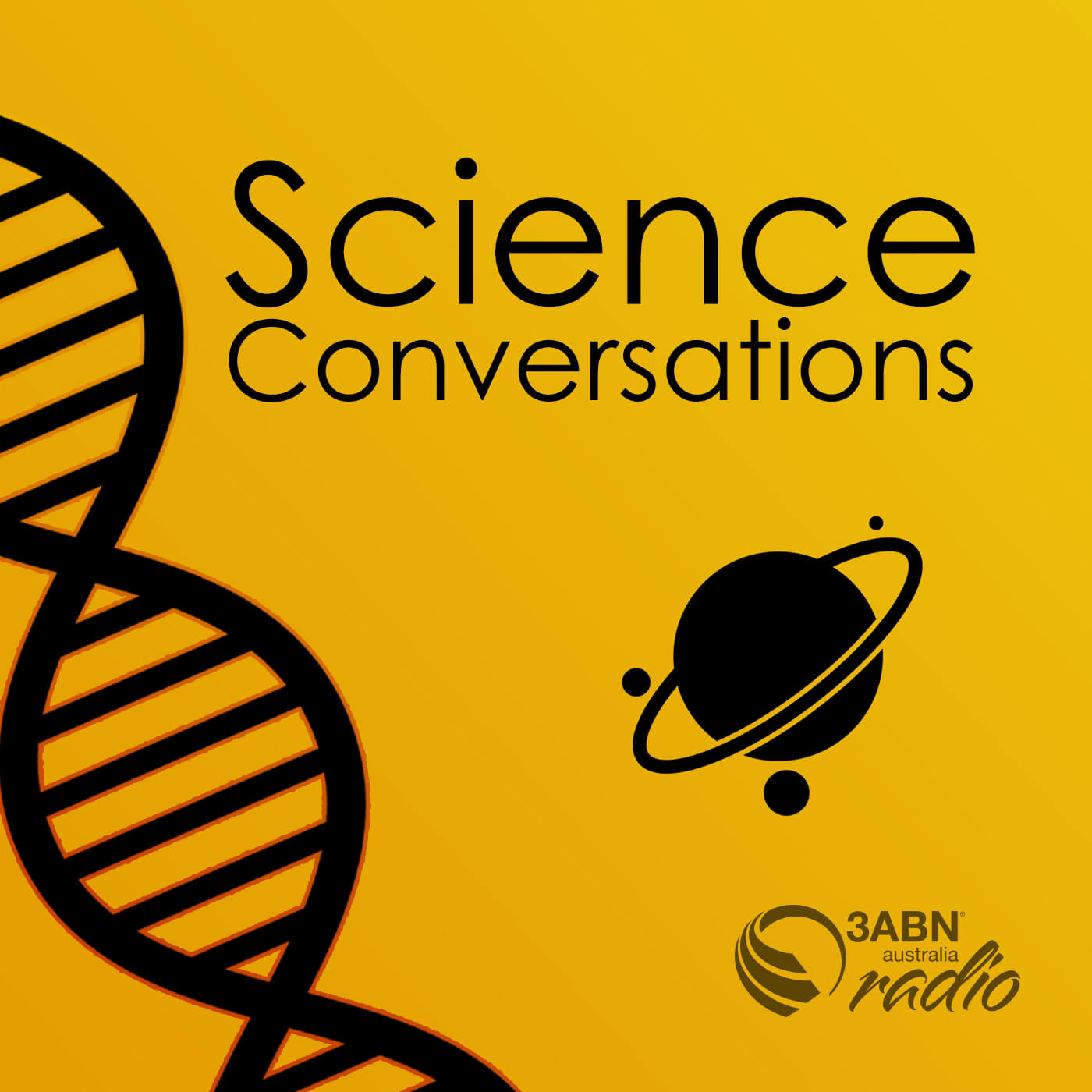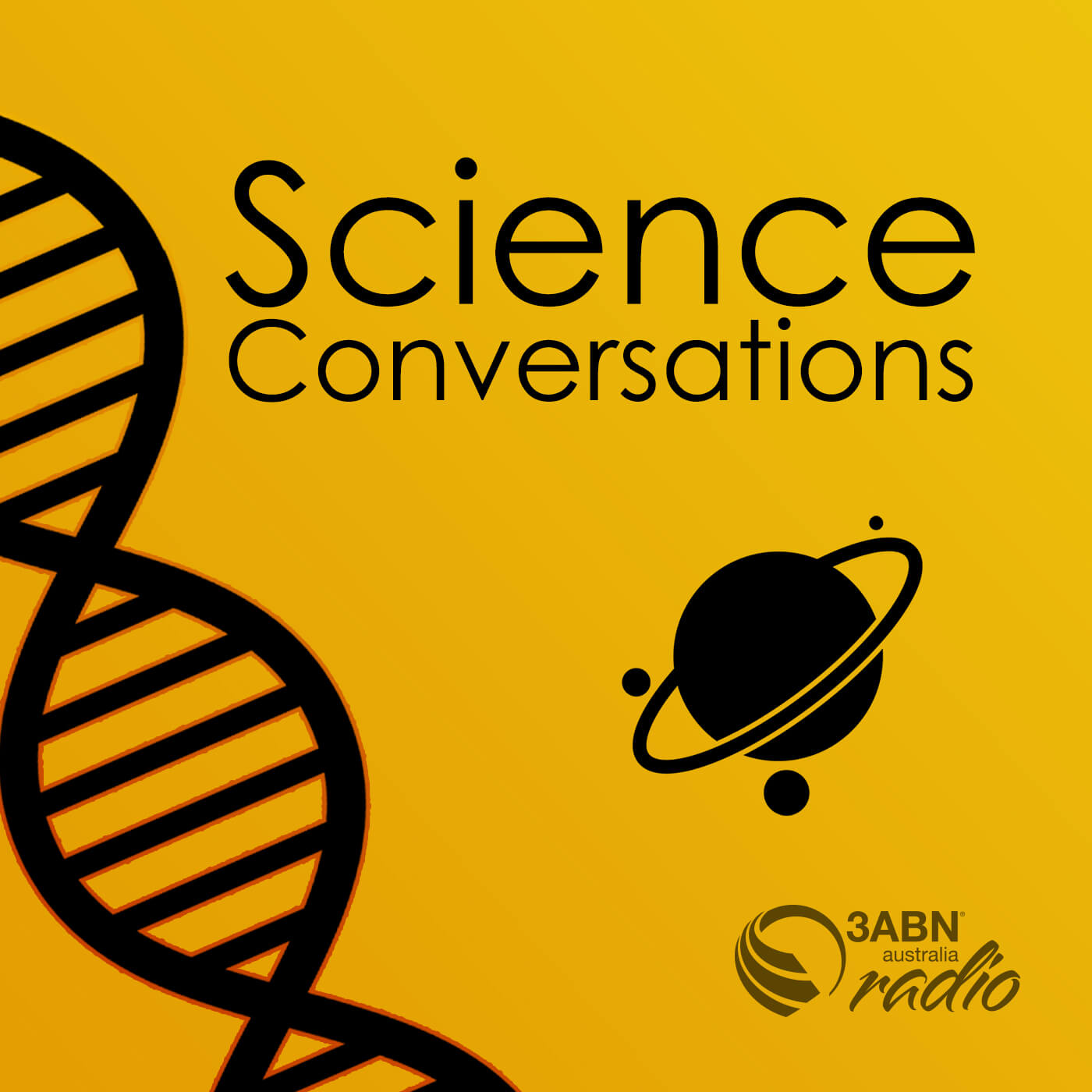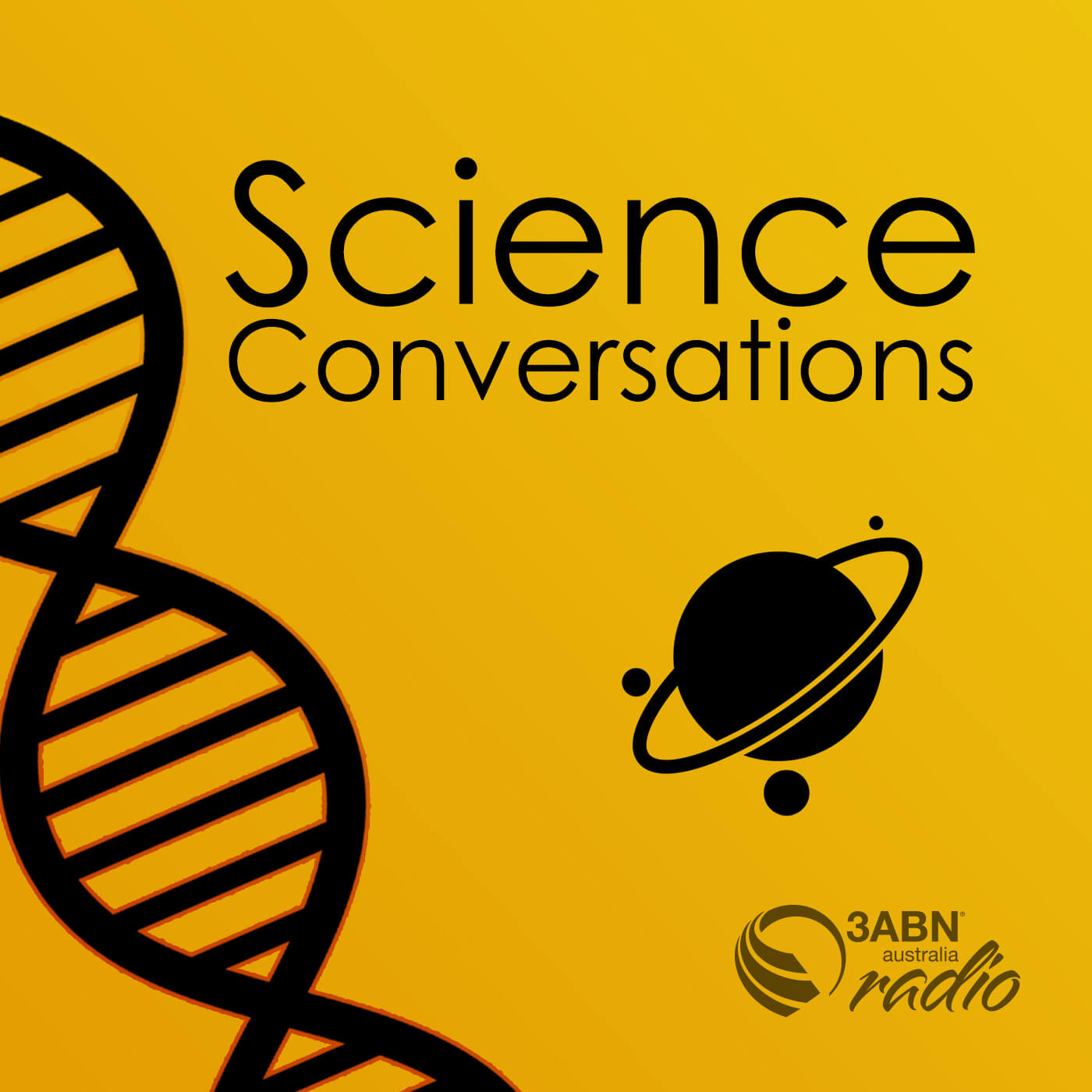Episode Transcript
SPEAKER 1
Welcome to Science Conversations. I'm Kaysie Vokurka. Are there problems with the Big Bang Theory? Joining me to discuss part two of this topic is Dr. John Ashton. Welcome to the program, Dr. John. Hello, Kaysie. Dr. John has written a book entitled Evolution Impossible: 12 Reasons why Evolution Cannot Explain the Origin of Life on Earth. And in our last session, we began a discussion on the content of chapter 11. And we're going to continue that today. And so, With what we spoke about before, we really could see that the Big Bang theory is essentially a mechanical explanation for the universe that excludes a supernatural power, a supernatural involvement. Now, this really is an assumption that there's no supernatural involvement. Can you talk more about this and any other assumptions that are put into this theory?
SPEAKER 2
Yeah, so the Big Bang model was an attempt to explain the origin of the universe using the known laws of physics. Now, when they started doing their calculations using this model, it didn't fit what they were observing. So they had to change things. So, for example, if the universe expanded at the speed of life, there wasn't enough time for it to spread out the way it is. So they had to have in what they called inflation theory, where initially the energy and as it was forming matter expanded much faster than the speed of light. So this is called inflation theory. And so this again is an artificial construct. And it's very important to note that it can't be falsified because we can't do experiments to verify that. So this is one of the assumptions. Another thing was that when we look out into the universe, we see about 95% matter and only about 5% antimatter. Now, this is quite important to understand what this is. If we look at matter, we would say an electron is matter and a positron would be antimatter. So when a positron meets an electron, they annihilate one another and form energy. So, they're two very tiny particles. So the law of Bayron number is that when we create matter from energy, right? So according to Einstein's equation, energy equals mass times the speed of light squared or the average speed of light squared, then we can convert energy into matter. And when we do that, we produce an equal amount of matter and antimatter. So, the Big Bang theory, why did it produce mainly matter? So what, in order to explain this, this contradiction of the law of Bayron number, which is what we observe, they proposed a whole lot of dark matter must be out there that we haven't observed to balance this out. So these are the sort of thing.
SPEAKER 1
So this is a term for something which hasn't been observed. It's just assumed to be out there and so they've given it a name. Is that correct? Dark matter. That's right. Essentially what it is.
SPEAKER 2
They're looking for it. They're trying to find it.
SPEAKER 3
Right. Yeah.
SPEAKER 2
Okay.
SPEAKER 3
Right.
SPEAKER 2
So, but without this, the Big Bang theory doesn't work. And without inflation theory, another one, of course, is dark energy. And the problem with dark energy is that, again, there had to be this source of energy. Otherwise they get a huge discrepancy between their calculated age of stars and their calculated age of the universe.
SPEAKER 3
Right.
SPEAKER 2
Yeah. So they get the stars being much older than the universe would be. So they get these horrible contradictions occurring. So they develop these fudge. They develop these fudge factors. So you've got inflation theory, dark energy and dark matter. and without these constructs, the Big Bang theory doesn't work. And the fascinating thing is, though, they've never been observed. They can't find them. We've been doing experiments for years. And it was interesting as long ago as, you know, over 20 years ago, a couple of decades ago, there was an open letter published by leading and signed by leading astronomers in the world It was published in New Scientist in May 22004. And I'll just read it out. This is what these top astronomers wrote. And there were people like Hilton Arp, who's the director of astronomy at the Max Planck Institute. Herman Bondi, professor of astronomy at the University of Cambridge. Thomas Gold, a really world-leading astronomer at Cornell University, he's died now. But these are the caliber of the guys that wrote this. Essentially what they said was, the Big Bang today relies on a growing number of hypothetical entities, things that we have never observed. Inflation, dark matter, and dark energy are the most prominent examples. Without them, there would be a fatal contradiction between observations made by astronomers and the predictions of the Big Bang theory. In no other field of physics would this continual resource to new hypothetical objects be accepted as a way of bridging the gap between theory and observation. And they go on to say the Big Bang theory can't survive without these fudge factors. without the hypothetical inflation field, the Big Bang does not predict the smooth isotropic cosmic background radiation that's observed because there would be no way for parts of the universe that are now more than a few degrees away in the sky to come to the same temperature and thus emit the same amount of microwave radiation without some kind of dark matter, unlike any that we have observed on Earth, despite 20 years of experiments, Big Bang Theory makes contradictory predictions for the density of matter in the universe. And they go on with more details. And then they conclude by saying, what is more, the Big Bang Theory can boast of no quantitative predictions that have subsequently been validated by observation. The success claimed by the theory's supporters consists of its ability to retrospectively fit observations with a steadily increasing array of adjustable parameters. And so what they're essentially saying is the only way they can make it fit is to adjust these fudge factors till it fits. Till it fits.
SPEAKER 3
Right? Right.
SPEAKER 2
But one of the fascinating things is when they adjust these fudge factors and say get the ratio of hydrogen to helium correct, right in the universe. Now it doesn't work for lithium. Right. So once they adjust it, yeah, okay, we've got it working for this, but it's not working for anything else. Nothing else works.
SPEAKER 1
So they're continually facing problems then. They try to solve one and there's another one, and then they have to make more and more things up.
SPEAKER 2
Exactly.
SPEAKER 1
Essentially, it sounds like what's happening.
SPEAKER 2
And that is continuing today to the present time. But it's interesting that some of the top astronomers have pointed out, too, that there's actually no... There should be other evidence of the Big Bang, such as shadow radiation and so forth. And they studied a whole lot of clusters, star clusters, and observed no shadow radiation. and again, other scientists have done calculations, said, look, this so-called microwave background radiation, which is supposed to be the remnant radiation from the Big Bang itself, actually just fits the black body radiation that we'd expect from starlight. It's just the same as starlight anyway.
SPEAKER 3
Okay.
SPEAKER 2
So that's what they say, you know, and this is quite important work that was published in in the Metaresearch bulletin that the microwave background radiation we observe makes more sense and agrees with the calculated values if it's recognized as simply the temperature of space as heated by starlight. It's that simple. But no, no, they want to think, no, no, this is remnant of the Big Bang. But hang on, that makes more sense. We observe starlight. It's just the background temperature from starlight. It's interesting it's the same, and that would be the most obvious explanation. But no, they want to cling to a Big Bang theory because they don't want to go down the overwhelming evidence that we have that our universe was supernaturally created. The evidence is very strong.
SPEAKER 1
It really does seem like that is a driving factor because otherwise, why would you hold to something that is so contradicted by what you observe? You would surely, if you're really thinking about it, you would surely think, okay, well, even if you did have this idea that it wasn't created by a supernatural being, you would surely think, okay, well, obviously there was a different scenario in how this all came about. And so you'd go thinking up another theory. You you would expect that, but no, it's, they're just holding onto it for dear life, it seems.
SPEAKER 2
Well, that's right.
SPEAKER 1
And keep fixing it.
SPEAKER 2
Especially since the cosmic background radiation is the main thing that got them thinking along these lines. And yet it has a very simple explanation.
SPEAKER 1
Yes, okay.
SPEAKER 2
But really what hurts me is that this is part of the standard curriculum in our schools to teach the Big Bang theory. And once people learned at school, they're taught by their teachers, they think, yep, this is it. They don't understand. They're not being taught all these major, as far as I know, all these major issues. And there's a number of things. A major problem that I write about in the book is with the Big Bang theories, it's way out in its prediction of satellite galaxies. The University of Cambridge educated professor of astronomy at the University of Bonn in Germany, Dr. Pavel Krupa, points out that we only observe about 1% of the number of these galaxies compared to what the theory predicts. And again, he says this is clear evidence that there's something badly wrong with the Big Bang. The other fascinating thing is supernova remnants. So these are the remnants from exploding stars, and we can measure the rate at which we observe these in the universe. And it's quite fascinating that when we count up the number of remnants that we observe, it fits the universe only being thousands of years old. If it was truly, you know, billion, 13 billion years old that they estimate it to be, there should be many, many more supernova elements. Interesting.
SPEAKER 3
Yeah.
SPEAKER 2
So there's quite a lot of, you know, astronomical evidence now that has come out. Another important factor is, of course, too, as we observe some of the most distant galaxies, right? So because that light has supposedly been traveling for billions of years to get here, it should represent a time picture billions of years ago. So it should give us a picture of the universe forming in the early stages after the Big Bang. But what they observe are fully formed spiral galaxies.
SPEAKER 1
Yeah, interesting.
SPEAKER 2
And so again, there's no evidence when, and they're claiming that we're going back in time. Yes. You should see these things forming rather than fully formed spiral galaxies in the most distant parts of the universe.
SPEAKER 1
Fascinating.
SPEAKER 2
So the more we put the picture together, the more we have a picture that our universe was created, it was supernaturally designed, And again, we have growing evidence as well that it can't be as old as we think. And a lot of this comes too from magnetic field measurements on the different planets in our solar system. Those magnetic fields should have died by now if they were truly billions of years old, these sort of scenarios. The evidence of still high temperatures, this sort of thing, they haven't cooled. When we look at the actual evidence that we can measure today, it's surprising how much evidence is pointing for a young age for the universe. This is something that blows people's minds because they've been so inculcated with this big bang concept and billions of years that when we find this evidence, they're immediately either they totally ignore it or they're desperately trying to find explanations for how these processes can continue on for billions of years without stopping. So there's a lot of evidence that is now confirming the biblical account. And the Big Bang theory has major, major problems with it. And I think remembering, these are the top astronomers that are saying it doesn't work, it hasn't worked.
SPEAKER 1
Very, very powerful things to consider and very thought-provoking as well in terms of the implications of it for our education and our worldviews and all of these things. So thank you for sharing and we have more to talk about on this topic. Next time we'll continue to examine the question, are there problems with the Big Bang theory? Be sure to join us.


